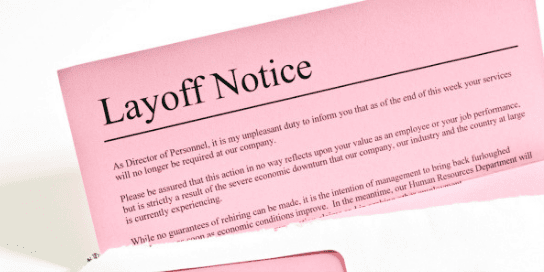“Habit 2, begin with the end in mind is based on imagination–the ability to envision in your mind what you cannot at present see with your eyes.
It is based on the principle that all things are created twice.
There is a mental (first) creation, and a physical (second) creation.
The physical creation follows the mental, just as a building follows a blueprint.
If you don’t make a conscious effort to visualize who you are and what you want in life, then you empower other people and circumstances to shape you and your life by default.”
– Dr. Stephen R. Covey
The standard conference hallway talk in wealth management goes something like this…
After the hob knobbing, name badge squint reading pleasantries, and highly manicured golf laughs, not too loud, please, the question will come:
“How many assets do you have under management?”
It’s a legacy ranking of prominence in our industry. The firms with all the assets, assuming they charge close to 1%, are assumed to make the most income.
it’s more like…
“How much money do you make off of your clients charging them asset-based fees?”
Followed-up by:
“What’s your average account size, and how many clients do you have?”
Another vanity ranking. As surely the most sophisticated of investors with the largest amount of assets will prefer your firm based on this, right?
What’s not to love?
Profit centers, or patients? Do more assets under management create positive client outcomes?
Doctor: “I perform the most surgeries in the busiest emergency room within the biggest hospital, and I make the most amount of money.”
You: “What about the patients entrusted into your care, how do they fair after treatment?
Doctor: “….(Silence)”
You: “How many live or die, and how fast do they get better?
What surgeries, treatments, and medications are the most effective and ineffective?
How does your bedside manner and technical gibberish get absorbed into actionable care?
How do you identify and reduce your common mistakes?
How do you question where you are wrong in your thinking post mortem, or how you can get better?”
Doctor: “Listen! Who cares lady?! We do a billion surgeries under our management…”
Would you trust a doctor if you knew they thought like that?
MARGIN is interested in creating a billion dollars in value for our clients; we could care less about getting to a billion dollars under management.
Please count us out of that rat race…
A better thought experiment…Yes, this is hard (seemingly impossible) to measure, and how I Imagine it may happen anyway (disclaimers too)…
Before you send this to your favorite financial regulation body of choice, let me make one thing clear: This is currently a thought experiment…Without a perfect method to determine efficacy.
And…
(1) We don’t envision getting there taking crazy amounts of risk with client money. We’ll rely on the merits of passive investing, and factor tilting.
We are not swinging for the fences with client capital, and striking out on many pitches that most can’t/won’t hit anyway: active investing, or worse, private investments that sound like, “Well Jerry, this investment is targeting a 15% IRR, and it’s invested in…”
Also, I don’t intend to overinvest in stocks to hit some arbitrary number while our clients are along for the volatility roller-coaster.
How could we measure value outside of an investment return?
(2) But first…Before we do, what should I do about clients hurting themselves against my prescribed methods of preferred care?
No action, or doing the opposite of my advice.
What happens if I recommend a tax strategy that saves a client thousands of dollars, and they don’t want to spend the time on their end implementing it:
They don’t do it.
Many more situations happen like this: life/disability insurance, estate planning, HECMs, HELOCs, 401(k) recommendations, I could go on and on…
Do I count it?
What happens if I recommend a client stay prudently invested, and they threaten me; tell me it’s their money, and what the hell do I know? The world is falling apart, and it’s different this time, so they sell out at a double digit loss.
Do I count it against me?
(3) Being proactive. What’s that worth to you?
Your wife comes home; she slaps the divorce papers down on the table and says she can’t do this anymore.
She’s tired of hearing how stressed you are about money, and how you “need” to work all the time.
She really misses you, and wonders why you are so worried and consumed by money…
How many times did she mention something before?
You’re up at night.
It’s official. We are in a recession, then, you realize you’re not sure how you’ve been invested. Everything has just been up, and now it’s really down…
You lose more than you thought, and now may not be able to become financially independent until you are much older.
How many times did you think about rebalancing or talking to someone?
You make a high income but save little and pay way too much in taxes.
You’re faking it. You Know. That everything is okay.
Who knows how far this income train will go?
Worse, you miss spending more time with your kids.
How many times did someone mention slowing down, saving more, so working to lower your taxes?
How do I measure avoiding your worst financial nightmares like these?
We care about…
Does your firm care about hunting for one more “whale client” (that’s what they call you) to get to a billion dollars of assets?
Or maybe…even though it seems impossible…
Do they try and imagine how they would create a billion dollars in value for their clients?
That question is how we begin with the end in mind.






